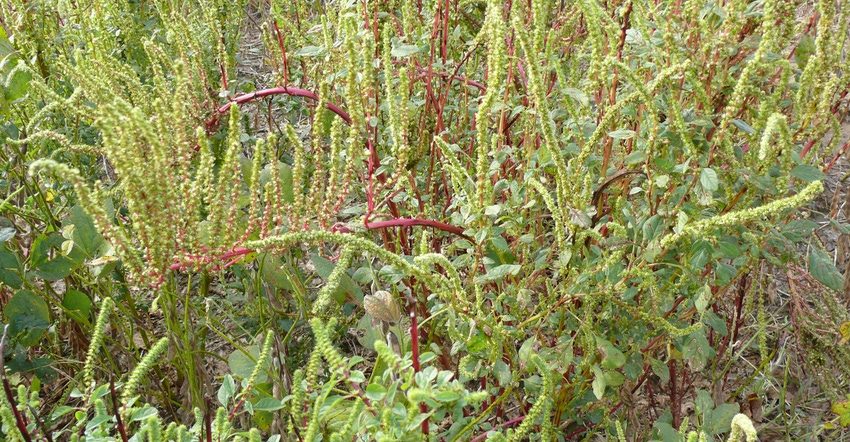February 6, 2017

Can crop seed be sold in Indiana that contains noxious weed seed? Don Robison, Indiana seed administrator, says no. Noxious weed seed is a deal breaker. Seed containing it can’t be sold in Indiana. The Office of the Indiana State Chemist and Seed Commissioner can issue a "stop sale" order.
So if you buy crop seed, you know you’re not getting seed that might contain Palmer amaranth seed, right? Wrong! As long as the total amount of weed seed doesn’t exceed 2.5% of the total volume, that seed could be sold legally.
Wait a minute. We just said that if a seed sample contains noxious weed, it can’t be sold, right? So how could seed containing Palmer amaranth seed be sold legally? Palmer amaranth is one of the fastest-growing and most virulent, prolific, yield-choking weeds in the U.S.
Robison has the answer. Yes, Palmer amaranth is all those things. But the seed can be sold because Palmer amaranth isn’t classified as a noxious weed under Indiana’s seed law.
Say what? That’s right. And that’s not all. Three other weeds that arguably do the most damage to yield potential today aren’t classified as noxious, either. They are marestail, waterhemp and glyphosate-resistant giant ragweed.
A bag of seed can contain any or all of these weed seeds, and unless the total percentage of weed seed exceeds the 2.5% limit, Robison is powerless to stop sale of the seed.
Time for change
The list of noxious weeds included in the state seed law was established in 1955, Robison says. Dwight Eisenhower was president. Neil Armstrong wasn’t even an astronaut yet. A John Deere 60 was a modern tractor. Canada thistle was added in 1983. Otherwise, the list hasn’t changed in more than 60 years.
Some of the weeds on the list are virtually no longer problems in Indiana. Agriculture has changed, but the list of noxious weeds hasn’t kept pace.
Robison is attempting to change the rule about noxious weeds within the seed law to include today’s tough weeds. He’s already initiated the process, but changing a rule is not as easy as just applying common sense and making a few phone calls.
In fact, there’s actually a temporary freeze on rulemaking changes within state government. Even if things begin rolling again soon, Robison says it could be late this year, at the earliest, before a new rule naming today’s worst weeds as noxious weeds goes into effect.
How big of a deal is this needed change? Odds are that until you read this story, you assumed Palmer amaranth and marestail were noxious weeds in Indiana. Until Robison brought it to our attention, we thought so, too!
It’s high time to call these weeds what they are — noxious — and give the state seed administrator the power to do what needs to be done to stop the sale of crop seed containing any of these weeds. In our opinion, bureaucrats should step aside and let this rule change go through quickly.
Some things just make sense. This is one of those things!
You May Also Like




